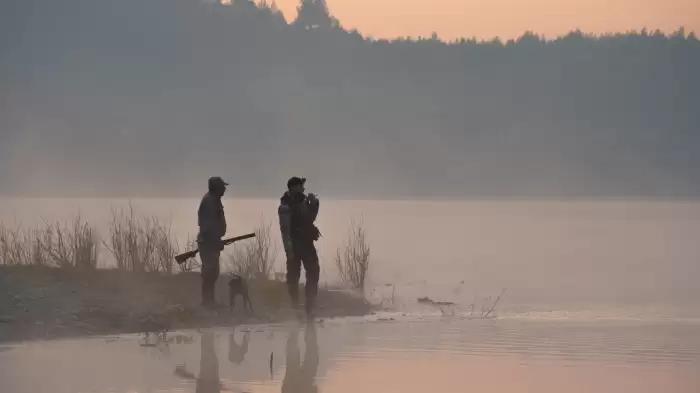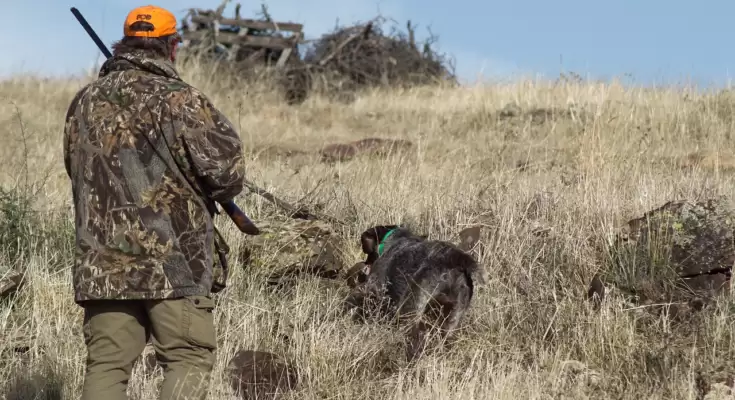If you’re interested in hunting, but you have limited exposure to the sport, you might not know where to begin.
You’ve come to the right place. Whether you’re a seasoned outdoors person or a newcomer to all things nature, getting started as a hunter is simple. While the learning curve can be high and the barriers to entry are numerous, we’re breaking down everything you need to overcome those challenges in this guide for new hunters.
Getting Licensed
Before you can start hunting, you’ll need to secure a license. Depending on your target species (more on that in the next section), you might need a:
- Local license– Some jurisdictions offer local licensing to hunt in specific areas or participate in opportunity hunts.
- State license– In many cases, you may only need a state license to start hunting your target species on private or public land.
- Federal license– To hunt some species, you’ll need a federal license — to duck hunt, for instance, you’ll need a Federal Duck Stamp.
In many cases, you’ll need to pass some sort of certification course to receive your license, like:
- A firearm or archery safety course
- A hunter’s safety course
- A concealed weapons course
Requirements vary by jurisdiction — a great way to find out how to get licensed is to ask a local fishing and wildlife authority in your area.
Choosing a Species
Once you’re licensed, it’s time to choose a target species — or more than one, if you’re feeling ambitious.
Many new hunters start with small game animals, like:
- Squirrels
- Rabbits
- Raccoons
- Doves
But, it’s not out of the question to start with bigger animals like:
- Hogs
- Turkeys
- Deer
- Elk
The species you choose will determine which equipment you need — it’ll also dictate which specific hunting skills you’ll need to develop. While hunting all species demands some basic gear and proficiencies, you’ll have more specific items to tackle based on your ideal target.
For instance, if you’re interested in hunting whitetail deer, you’ll likely need:
- A rifle, shotgun, or archery weapon
- Ammunition/broadheads designed for large game
- Practice taking 15+-yard shots with your weapon of choice
- Experience with navigation and tracking
But, if you’re planning to hunt ducks, you’ll need separate gear, like:
- A shotgun
- Non-toxic ammunition designed for fowl hunting
- Practice shooting at moving targets (clay pigeons, for instance)
- Waders and other waterproof gear
- Calls
The best way to choose a species is to research some of the most popular game animals in your areaandthe regulations for hunting them in your jurisdiction.
Selecting a Weapon
The perfect weapon for your application will depend most on three factors:
- Your comfort and proficiency
- Your target species
- Regulations in your area for hunting your target species
If you’re new to hunting, you might not be comfortable or proficient withanyweapons yet—that’s okay. Focus on choosing the right weapon for your target species that are allowed in your hunting area. Here are some common weapon choices for some of the most popular target species:
- Squirrels and rabbits– Small caliber rifles
- Wild hogs– Large caliber rifles, shotguns, archery weapons
- Deer– Large caliber rifles, shotguns, archery weapons
- Doves, quail, and other small birds– Shotguns
- Wild turkeys– Shotguns, archery weapons
- Elk, moose, and bears– Large caliber rifles, archery weapons
Of course, there are some animals that require more specific gear. Hunting alligators, for instance, often requires niche tools like harpoons or bang sticks. Research which weapons are most commonly used to take down your target speciesandreference your local hunting regulations to assess your options.
Sourcing Gear
No matter which species you choose to hunt, you’ll need some basictactical gear, like:
- Camouflage clothes that match your local flora (and this can change by season)
- A weapon, like a firearm or a bow with high-qualitybow strings
- Ammunition
- A blaze orange vest or cap
- Quality outdoor shoes
- Ear protection, like tactical headphones
- Eye protection (any eyewear will do)
- Butchery knives
- A compass
- Cord
- A backpack
But, depending on your target species, you may need some specialty gear. For instance, if you choose to hunt wild turkeys, you might benefit from using calls, decoys, and enhanced camouflage (like head nets or face paint).
Building Skills
While you acquire all of the gear you need to hunt, start working on thehunting skillsyou’ll need to bag your target species. That can look like:
- Practicing at a range– Take your weapon to a target range or practice in your backyard (if allowed in your area). Always make sure to point your weapon in a safe direction and know what’s beyond your target,especiallyif you’re shooting outside of a range setting.
- Reading about your target species– Learning all you can about the species you’re hunting can help you discover which skills you’ll need to bag them successfully. Wild turkeys, for instance, have very alert senses; to hunt them successfully, you’ll need to learn to walk quietly in the woods.
- Practicing in the wild – Hunting requires non-marksmanship skills, too. When you’re not at the range, practice navigating with a compass, identifying animals in your area, and using your calls.
Hunting: A Beginner-Friendly Hobby

With the right resources, hunting can be a very beginner-friendly hobby. While it might take multiple seasons to fill your tags for the first time, enjoying the great outdoors is one of the best perks of hunting — enjoy the ride as you build your skills, learn more about your target species, and experience local natural areas.
